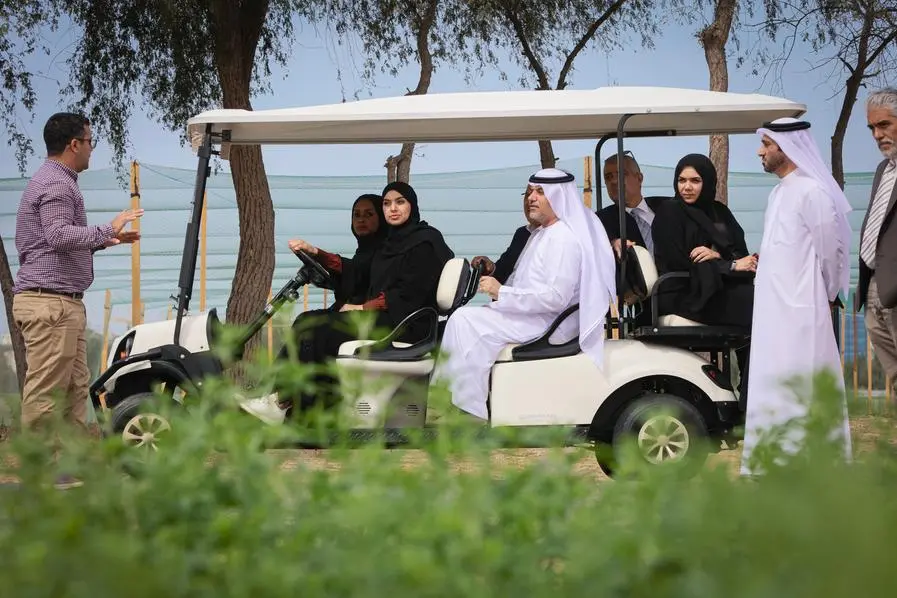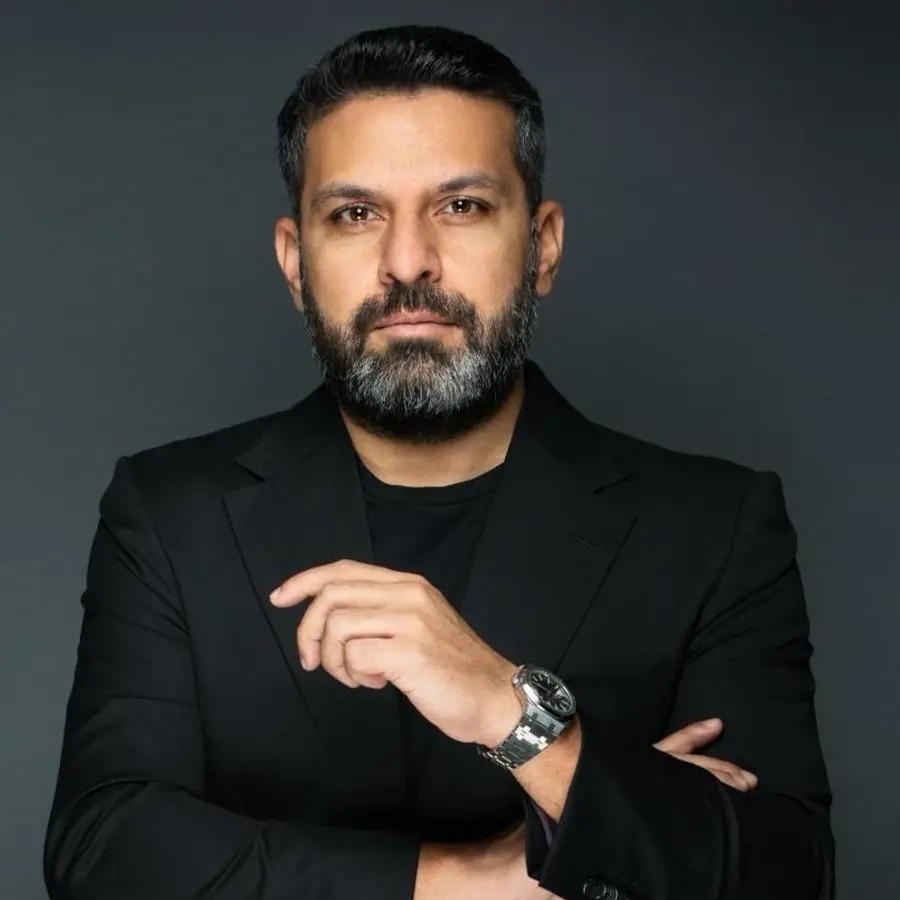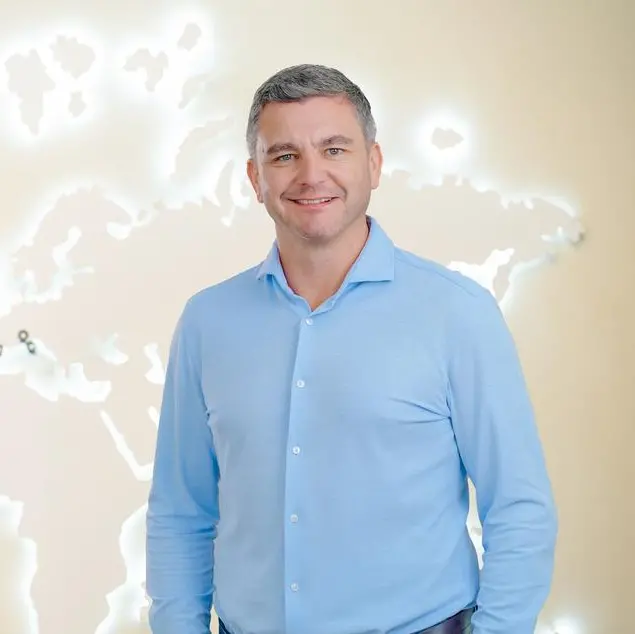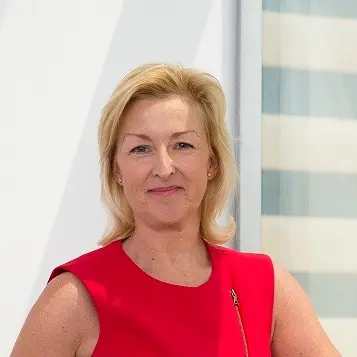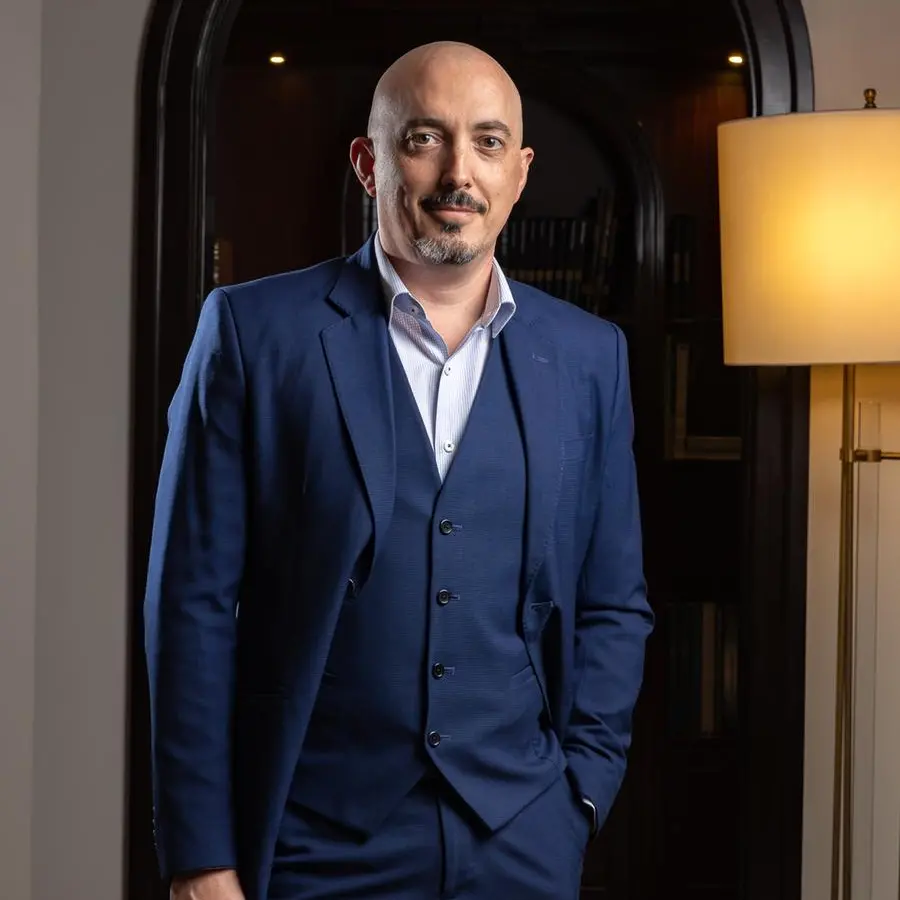PHOTO
- During the visit, Her Excellency Dr. Amna Al Dahak had the opportunity to harvest produce at the Millet Demo Farm and inspect the center’s protected crops, gene bank, and evaluate advanced agricultural research.
- ICBA showcased its accomplishments in successfully growing crops in saline and marginal environments, sharing their knowledge, and training local farmers on these techniques.
H.E. Dr. Amna Al Dahak
- The UAE has a clear vision to enhance its food security through innovation and scientific research in order to overcome the challenges posed by climate change and the UAE’s desert environment and water scarcity.
- At ICBA, I have witnessed significant progress in agricultural research and experimentation, opening up opportunities to increase the production of critical crops and reduce reliance on imports.
- There is a fundamental need to enhance the sustainability of agricultural products as part of the National Environment Day initiative, which focuses on the sustainability of local products.
Dubai, UAE: Her Excellency Dr. Amna bint Abdullah Al Dahak Al Shamsi, Minister of Climate Change and the Environment, visited the International Center for Biosaline Agriculture (ICBA) in Dubai. During her visit, she was updated on advanced agricultural technologies and research at ICBA and learned about their contribution to improving national and global food security.
H.E. Dr. Amna was welcomed by H.E. Dr. Tarifa Alzaabi, Director General of ICBA. The meeting was attended by H.E. Mohammad Saeed Al Nuaimi, Undersecretary of the MoCCAE, and H.E. Eng. Mohammed Mousa Alameeri, Assistant Undersecretary for the Food Diversity Sector at the MoCCAE.
The visit is part of the Year of Sustainability and National Environment Day, and aimed to shed light on the latest projects by ICBA, as well as the innovations, research, and achievements in crop cultivation and production to sustain agricultural and food production in the UAE and around the world.
During the visit, H.E. Dr. Amna bint Abdullah Al Dahak said the UAE has a clear vision to enhance its food security through innovation and scientific research in order to overcome the challenges posed by climate change, and the UAE’s desert environment and water scarcity. She emphasised that the International Center for Biosaline Agriculture plays a vital role in this area through scientific and research activities conducted in the UAE.
Her Excellency said: "I am delighted with my first visit to the ICBA, where I witnessed significant progress in agricultural research and experimentation. The work the ICBA do has opened up opportunities to increase the production of critical crops, which will reduce our reliance on imports. The Ministry of Climate Change and Environment is committed to providing all necessary support to the ICBA and other agricultural scientific and research centres in the country. Our collective goal is to develop climate-smart agricultural systems that reduce carbon emissions and support our national food security now and in the future."
H.E. highlighted that the purpose of the visit is to underline the importance of improving the sustainability of local products, which was also the theme of National Environment Day. She emphasized that ensuring the sustainability of agricultural products is a top priority in the UAE in order to guarantee the production of agricultural and food products for our community at all times.
H.E. Dr. Tarifa Al Zaabi said: "We are pleased to welcome H.E. Dr. Amna bint Abdullah Al Dahak on her first visit shortly after assuming her position, which reflects her interest in ICBA and the centre’s scientific and applied research programs.” H.E. Dr. Al Zaabi stressed that the center has tremendous capabilities in agricultural research, and has achieved success in seed germination, cultivation of various crops, enhancing agricultural productivity, and ensuring its sustainability in saline and marginal environments.
H.E. Dr. Tarifa Al Zaabi added: "We are actively working to transfer our successful experiences and knowledge to local farmers in the UAE to improve the productivity of strategic crops, thereby contributing to the UAE's food security. There are several training programs and educational workshops that are organized with the aim of introducing the climate smart crops. ."H.E. Al Dahak was provided with an overview of the center's initiatives and research, as well as future plans for agricultural research, soil and irrigation efficiency, remote sensing, climate-smart crops, and genomics research for healthier crops. She visited the center's genebank, which contains 16,000 accessions of crops tolerant of heat, salinity, and drought.
H.E. also held a meeting with all the researchers, wishing them success in all their endeavors and encouraging them to continue their work and achievements.
During her visit, H.E. Al Dahak also planted a Ghaf tree, known for its ability to withstand harsh climate and environmental conditions, and holds special symbolism in the history, heritage, and identity of the United Arab Emirates.
H.E. also toured ICBA's research station that has a main field with a number of agricultural crops and conducts local UAE-specific agricultural research as well as international research.
She also participated in the harvesting of the Millet Demo Farm inaugurated by ICBA during COP28. The center will soon transfer the latest knowledge and research findings to local farmers through a training program. ICBA has been carrying out sorghum and pearl millet research since 2000, and scientists have tested hundreds of sorghum and pearl millet accessions in many countries around the world. The center showcases the entire value chain of millet at the Millet Demo Farm, starting from seeds and leading up to consumption.
-Ends-
